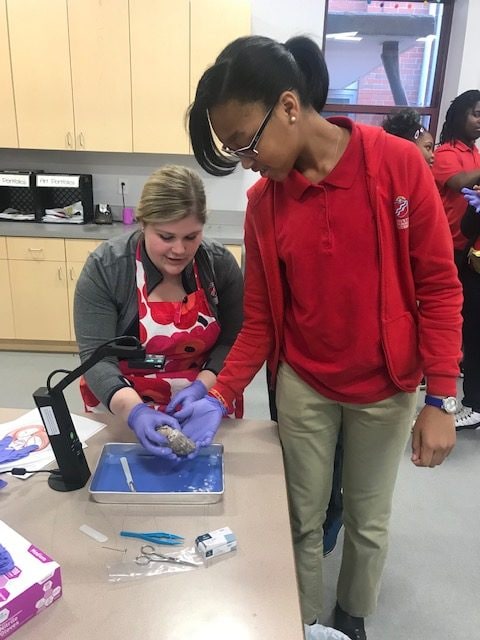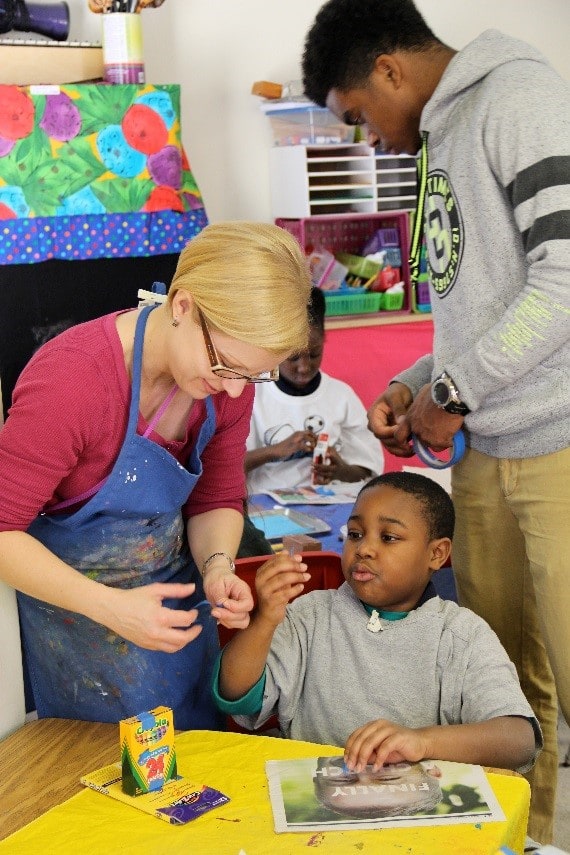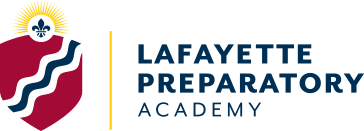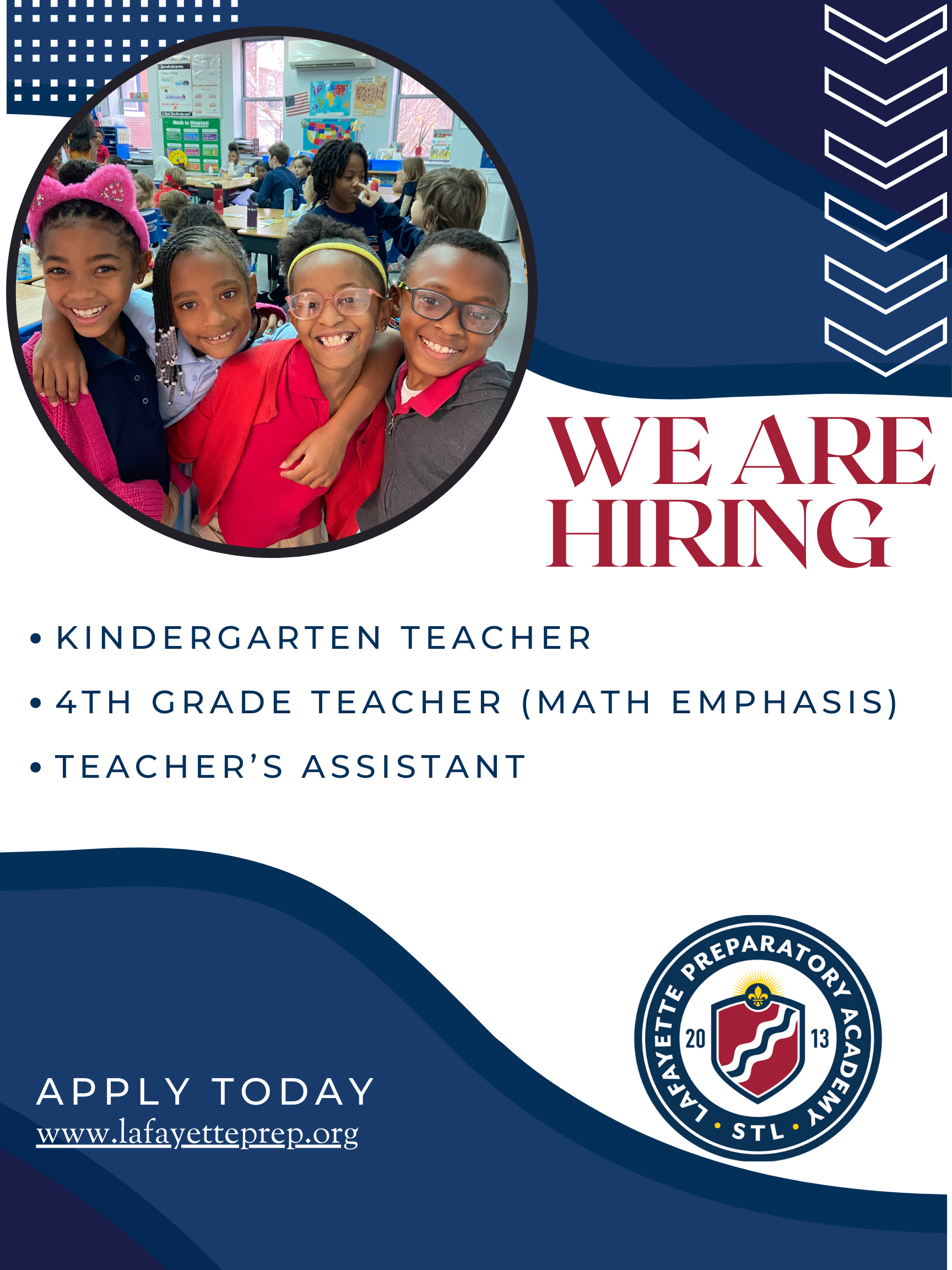These building blocks are the foundation of our top-ranked academic program:
- Literacy and Communication Arts
- Mathematics
- Science
- Social Studies
- Physical Education and Healthy Living
- Music and Art
- Curriculum development and teacher input
We believe our inquiry-based approach empowers students to explore content deeply, often in small groups or independently. They begin with a thorough knowledge of content and then have time to ask questions about that content, rethink it, problem-solve and work through mistakes—all of which help them excel and achieve their personal best.

Literacy and Communication Arts
At LPA, students experience a balanced-literacy approach to reading and writing. Each child is assessed through Fountas & Pinnel and iReady to determine areas of strength and growth. With students’ areas of strength and need for growth in mind, teachers create small group learning opportunities—including guided reading, reader’s workshop and writer’s workshop. Students work together to solve problems and build comprehension skills. Phonemic awareness and phonics instruction form the building blocks for our great readers. Programs such as Benchmark Phonics, Making Meaning and Handwriting without Tears support student learning.
Mathematics
The highly rigorous think!Mathematics program based on the Singapore math approach is the core of LPA’s elementary mathematics curriculum in grades 1-5. Math concepts and skills are developed through three stages of learning: concrete, pictorial, and abstract. By building each skill within this framework, students explore mathematical concepts tangibly (concrete) and build out to the abstract (traditional algorithms). Each lesson begins with a math task to encourage dialogue among students and supports a “low floor/high ceiling” approach to differentiation. think!Mathematics supports fact fluency development alongside conceptual understanding and utilizes journal prompts as a tool for math communication. After completing the Developing Roots program in Kindergarten, students will have a strong number sense and the skills needed to begin to understand complex tasks such as multiplication and division. By the end of our elementary program, students will be able to work with advanced whole number concepts, compute degrees of angles and complex area and perimeter problems, and work with fractions and decimals. Each child is assessed through iReady diagnostics to determine their areas of strength and growth.
Science
Our science curriculum is designed by our teachers and instructional coaches in partnership with Washington University’s MySci program. The program is project-oriented and in alignment with the Next Generation Science Standards. With our focus on inquiry learning, science is often our students’ favorite part of the day.
Social Studies
Like science, our social studies curriculum is designed in-house. Because LPA is a school with community at the core, our social studies program uses the National Themes of Social Studies. It begins in kindergarten with students learning about their classroom, families and school as communities. In first grade, students learn about St. Louis as a community past and present. Second graders learn about world communities. In third grade, they learn about ancient civilizations. Our fourth graders learn about regional and national government. Fifth graders study ancient civilizations and learn how communities were formed. Sixth and seventh graders examine U.S. history from different points of view and eight graders focus on civics.

Physical Education and Healthy Living
Maintaining a healthy mind and body is critical for every child’s success. Our students enjoy physical education for 30 to 60 minutes two to three times each week. Elementary students also have one or two recesses daily to play and run—as well as learn jumping and dribbling skills, practice teamwork and learn the value of good sportsmanship. Every spring, the entire LPA community engages with the Our Whole Lives curriculum to explore human development through the lens of changing bodies, growing up and sexual health.
Music
Elementary students have music classes two to three times per week. Middle school students can take music as an elective and learn a variety of skills from choral singing to percussion. Perhaps most importantly, students use music to build connections with their peers and find ways to work as a team and support each other.

Art
Students at LPA take art classes two to three times each week. Students learn many techniques celebrated throughout history and around the world—making connections between art and literacy and producing pieces for display each week.
Technology
Students take a technology-based Project Learning Course two to four times each week where they integrate their learning from each class to design a unique project. This program uses hands-on exploration and various forms of technology to directly tie grade-level content to the students’ interests. Projects such as circuit-building, bicycle design and computer coding are all part of this one-of-a-kind class.
Curriculum and Development
Please see our page on Teacher Development for more information.



